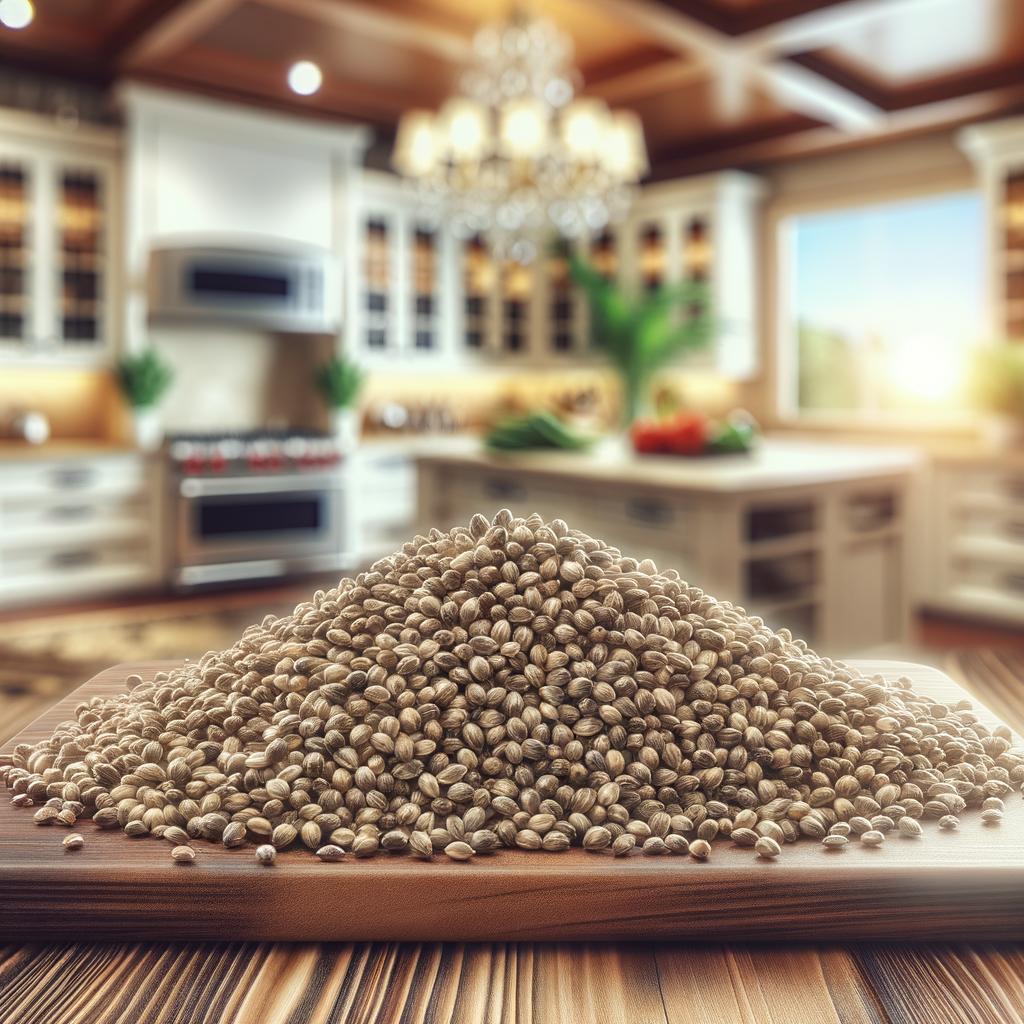Hemp Seeds

Description
Allow me to introduce you to the humble hemp seed, a tiny yet powerful ingredient that has been making waves in the culinary and health world. These small, brown seeds, encased in a hard hull, are a bit like sunflower seeds in appearance, but their flavor profile is uniquely their own. They possess a delightful nutty flavor, reminiscent of a cross between a sunflower seed and a pine nut, and a soft, creamy texture when hulled. Their unique characteristic lies in the fact that they are a complete protein, containing all nine essential amino acids, a rarity in the plant world.
Primary Uses
Hemp seeds have a broad spectrum of culinary uses. They can be eaten raw, cooked, or roasted. Often, they are ground into a meal, pressed into oil, or even made into a milk alternative. They're a popular addition to salads, smoothies, granola, and baked goods for an added crunch and nutritional boost. In vegan cooking, they're a beloved protein source. Beyond the kitchen, hemp seeds have been used for their medicinal properties, particularly in traditional Chinese medicine, to soothe digestion and treat skin diseases.
History
The history of hemp seeds is as rich as their flavor. Their use dates back to ancient civilizations, where they were cultivated in China as early as 6000 B.C. They were not only used for their nutritional benefits but also for their fibers, which were used to create textiles. Over time, the popularity of hemp seeds spread across continents, finding a place in various cultures and cuisines. There are tales of medieval monks using hemp seeds in their potions and ancient sailors using them as a valuable source of protein on long voyages. Despite periods of prohibition due to its relation to the cannabis plant, the 21st century has seen a resurgence in the popularity of hemp seeds, with a renewed appreciation for their nutritional benefits and versatility in the kitchen.
Nutritional Information
Nutritionally, hemp seeds are a powerhouse. They are an excellent source of protein, with more than 25% of their total calories coming from high-quality protein. They're also a great source of essential fatty acids, such as omega-3 and omega-6, and they're rich in dietary fiber. Additionally, they're packed with vitamins and minerals, including Vitamin E, phosphorous, potassium, sodium, magnesium, sulfur, calcium, iron, and zinc. Compared to similar seeds like chia or flax, hemp seeds offer a more diverse protein source and have a more balanced ratio of omega-3 to omega-6 fatty acids. Consuming hemp seeds may benefit heart health, skin health, and provide relief from certain symptoms of PMS and menopause due to their high levels of gamma-linolenic acid (GLA). Truly, these little seeds pack a big nutritional punch.

